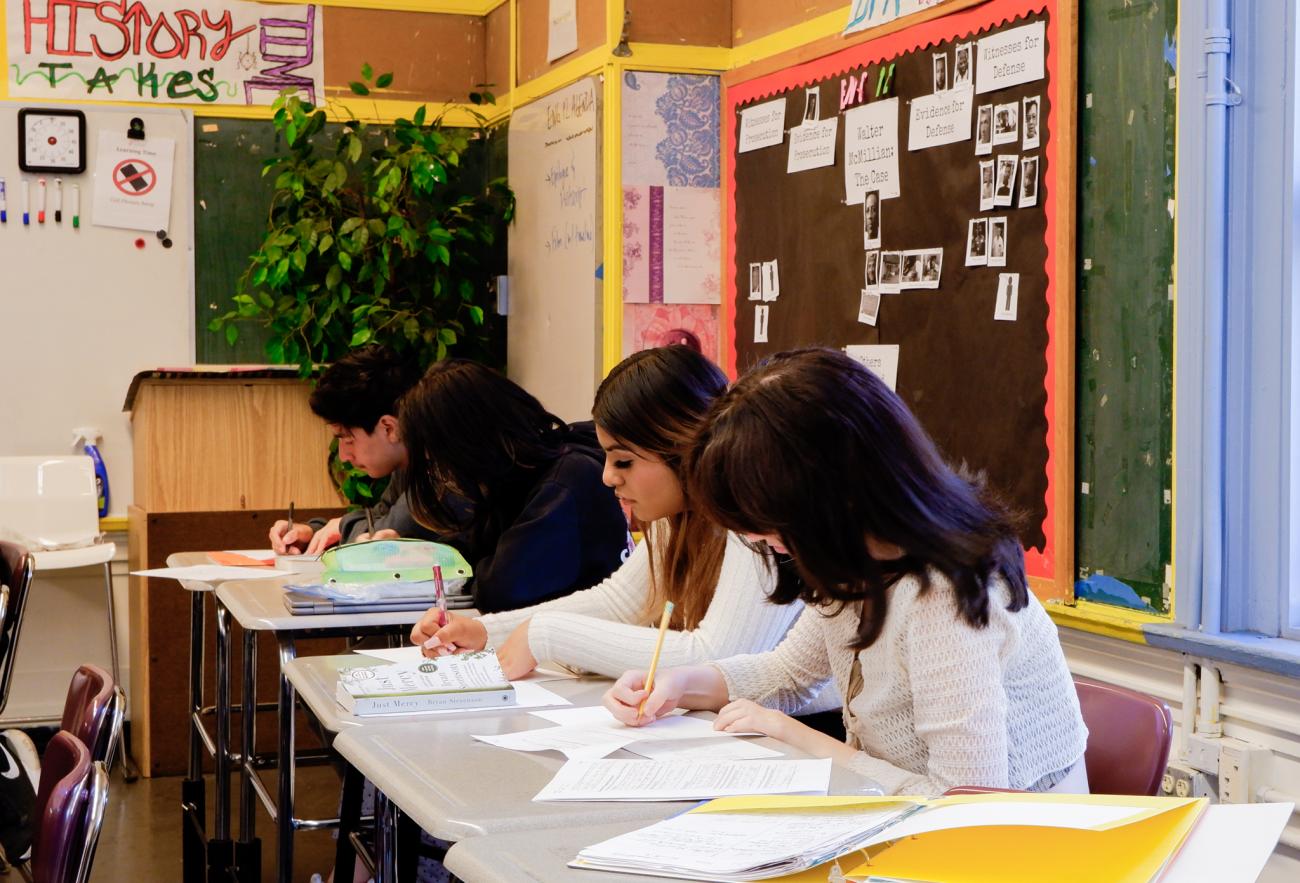The Learning Center reflects Gateway’s philosophy that all students learn differently and the commitment to help a diverse body of students realize their full learning potential. Often described as “the academic engine of the school,” the Learning Center is available to all students who need additional support, whether they receive formal special education services or not. Our vision is that of a learning community where all learners have access to the resources they need to thrive without shame or stigma.
The Learning Center

Learning Center Services
The Learning Center is staffed by a Director, Learning (Resource) Specialists, and Instructional Assistants who provide many different services to students.
Supports for Students with Learning Differences
We are qualified to support students with mild to moderate disabilities. We believe in the inclusion of students with identified disabilities in the general education classroom as much as possible, and do not currently offer Special Day Classes (SDC).
Gateway Learning Center staff provide support to students in their core academic classes and in small elective classes. Students with learning differences may benefit from one or more of the following services:
- Collaboration between the student, learning specialist, general education teachers, and other service providers;
- Classroom accommodations, testing accommodations, assistive technology;
- Classes co-taught by a teacher and learning specialist;
- Classes supported by an instructional aide;
- Learning Skills class 3x/week;
- Reading Comprehension Intervention Class 3x/week.
Learning Skills Class
Learning Skills classes are taught by a Learning Specialist, supported by an Instructional Aide, and meet three times each week. Each class contains 5-8 students in the same grade level. The Learning Skills classes are treated as elective courses, and students receive 5 credits per semester and a letter grade for their class participation.
Students in the class learn a variety of study skills such as note taking, organization, memorization, test preparation, and test-taking techniques. They gain an understanding of their own learning strengths and challenges, and work with the learning specialist to find strategies, assistive technologies, and accommodations that match their particular learning profile. As students’ self-awareness grows, they begin to develop and practice self-advocacy skills. Students in Learning Skills classes not only become familiar with, but also help shape their own personal learning plans, including their goals, accommodations, and services.
Learning Specialists also pre-teach and re-teach difficult concepts introduced in students’ core academic classes and provide students with opportunities to work on the goals outlined in their IEPs (Individual Education Plans).
Reading Comprehension Class
Students are given a Reading Comprehension test at the end of each school year. Those performing significantly below grade level are given a more thorough 45-minute individual reading assessment (Fountas & Pinnell Benchmark Assessment) and if necessary participate in our Reading Comprehension elective class. Students with similar reading abilities are placed into the same class, and instruction is designed according to their reading level. The class consists of oral reading, silent reading, reading comprehension strategy instruction, vocabulary instruction, and fluency instruction at the students’ instructional levels. Each class is comprised of 3-6 students and meets 3 times per week.
Reading Skills Class
If a student’s word identification skills are in particular need of intervention, they are enrolled into a Reading Skills class, taught by a Wilson Reading Certified Instructor. The instructor uses a highly systematic, multisensory, research-based approach to improve word identification skills for students lacking basic word reading skills. Each class is comprised of 3-6 students and meets 3 times per week.
Determination of Eligibility for Special Education Services
Gateway High School uses a Response to Intervention (RtI) model to identify students who may have learning challenges due to a disability.
- Advisors monitor students’ progress in their classes to ensure that students are achieving and meeting expected outcomes and identify those who may need additional support.
- When a student is identified, the Student Success Team (SST) comprised of the student, his or her family member(s), the Advisor, General Education teacher(s), the Director of the Learning Center, and/or other Administrative staff, work together to discuss a student’s strengths and areas of concern and recommend interventions and accommodations that become part of an Action Plan.
- The student’s advisor works with the Director of the Learning Center or other administrator to ensure that the Action Plan is implemented and results are tracked and analyzed for progress.
- The Student Success Team may meet again to adjust the action plan as necessary.
- The Student Success Team may conclude that a referral to San Francisco Unified School District for a psycho-educational evaluation is appropriate.
- If appropriate, SFUSD conducts a psycho-educational assessment and shares results with the IEP team. The Team determines whether or not the student is eligible to receive Special Education Services.
Testing Support
Extended time and alternative assessment environments are coordinated through the Learning Center.
Technology
Gateway’s Learning Center is equipped with a variety of assistive technology tools. Gateway High has a Learning Ally membership, giving students with learning differences free access to over 80,000 audiobooks (textbooks and literature titles.) Our Learning Center iPads are equipped with several assistive technology apps. For example, the Dragon Dictate app translates speech to text, and Inspiration 9, used to create concept maps, is especially effective for visual learners. It is a great tool for organizing ideas before beginning a rough draft.